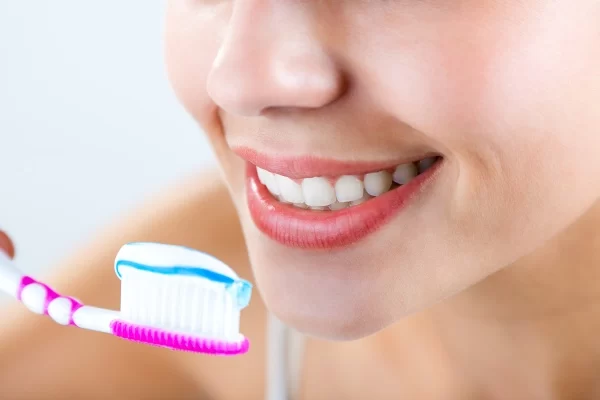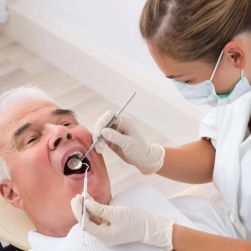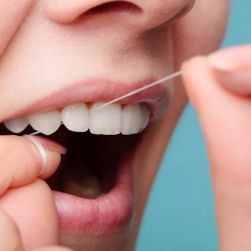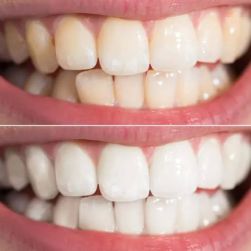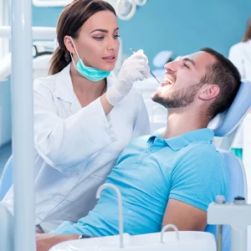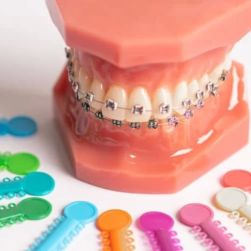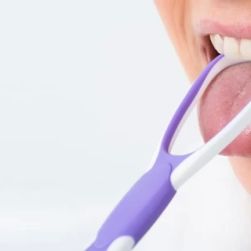The Best Oral Care Habits to Prevent Tooth Loss and Maintain a Healthy Smile
We all know that taking care of our teeth is important, but how often do we actually think about what’s involved in keeping them healthy for a lifetime? Whether you’re 20, 40, or 60, it’s never too late to adopt habits that will help prevent tooth loss and ensure your smile stays bright and strong. I used to think that brushing my teeth twice a day was enough, but over the years, I learned that maintaining good oral health involves more than just brushing. It’s about making daily habits a part of your life and understanding how each step contributes to long-term tooth preservation. Here, I’ll share with you some of the most important oral care habits to prevent tooth loss and keep your teeth looking and feeling their best.
1. Brushing Your Teeth: The Foundation of Oral Health
We’ve all been taught the importance of brushing our teeth since we were kids, but did you know that brushing properly is just as important as brushing frequently? I used to brush my teeth hurriedly, thinking that as long as I did it, it was enough. However, after a visit to my dentist a few years ago, I learned that brushing techniques matter just as much as how often you brush. It’s recommended to brush your teeth for at least two minutes, twice a day, using fluoride toothpaste. Fluoride helps to remineralize tooth enamel, making it stronger and more resistant to cavities.
Here are some tips I now follow when brushing:
- Use a soft-bristled toothbrush to avoid damaging your gums and tooth enamel.
- Brush in gentle circular motions rather than scrubbing back and forth.
- Make sure to brush the fronts, backs, and chewing surfaces of all teeth.
- Don’t forget to gently brush your tongue to remove bacteria.
2. Flossing: The Step That Can’t Be Ignored
If you’re like me, you may have once considered flossing an optional extra, but I quickly learned that it’s just as important as brushing. Flossing helps remove plaque and food particles stuck between teeth and along the gumline, areas that brushing can’t always reach. Over time, plaque buildup can lead to gum disease, which, if left untreated, can result in tooth loss.
My dentist recommended I floss at least once a day, and now I see the real difference it makes. I like to floss before bed because it helps clean my mouth after meals and gives me a fresh start for the next day.
3. Rinsing with Mouthwash: An Extra Layer of Protection
While brushing and flossing are the core steps in my routine, using mouthwash has become my favorite finishing touch. Mouthwash helps to kill bacteria that brushing and flossing may have missed, and it also helps keep my breath fresh. Some mouthwashes contain fluoride, offering additional protection against cavities.
One piece of advice I received was to avoid using mouthwash immediately after brushing my teeth because it can rinse away the concentrated fluoride from the toothpaste. Instead, I like to wait a little while before using mouthwash to get the full benefit of both.
4. Eating a Balanced Diet for Healthy Teeth
What I’ve learned over the years is that the food we eat plays a massive role in maintaining healthy teeth. I used to think that brushing and flossing were the only things that mattered, but then I realized that eating foods rich in vitamins and minerals is just as important. For example, foods like leafy greens, dairy products, and fruits high in vitamin C can help strengthen teeth and gums.
On the other hand, I try to limit sugary foods and drinks, as they can contribute to plaque buildup and cavities. Sodas, candies, and other sugary treats may taste great, but they create an environment where bacteria thrive and attack tooth enamel.
5. Regular Dental Checkups: Prevention Is Better Than Cure
One of the best habits I’ve developed over the years is scheduling regular dental checkups. It’s easy to put off visits to the dentist, but I’ve learned that seeing a professional every six months is essential for catching problems early. During these visits, my dentist checks for early signs of tooth decay, gum disease, and other issues that could lead to tooth loss if left untreated.
Even if I don’t have any noticeable issues, routine cleanings help keep my teeth free from plaque and tartar buildup. I’ve noticed that regular checkups also give me peace of mind knowing that I’m on the right track with my oral health.
6. Avoid Smoking: Protect Your Teeth from Damage
For years, I didn’t realize the damage smoking could do to my teeth. It wasn’t until I spoke with a dentist who explained the risks that I took action. Smoking stains teeth, contributes to gum disease, and can even cause tooth loss by damaging the bone structure that supports your teeth. After hearing this, I decided to quit, and it’s been one of the best decisions I’ve made for my oral health.
Aside from the direct effects on your teeth, smoking also reduces the flow of saliva, which plays a crucial role in protecting your teeth from bacteria and decay. If you’re a smoker, I encourage you to talk to your dentist about strategies to quit and protect your smile.
7. Wear a Mouthguard if You Grind Your Teeth
Something I struggled with for years was teeth grinding, especially at night. I never realized how much damage I was causing to my teeth until my dentist pointed it out. Grinding can wear down enamel, cause fractures, and even lead to tooth loss over time. Now, I wear a custom-fitted mouthguard every night to protect my teeth from grinding while I sleep.
If you notice signs of teeth grinding, such as sore jaw muscles or worn-down teeth, it’s important to speak to your dentist. They can recommend the best solution to prevent further damage and protect your teeth.
8. Stay Hydrated: A Simple Habit That Helps
It’s easy to forget how important water is for our oral health. Drinking water throughout the day helps rinse away food particles and bacteria from the mouth, reducing the risk of plaque buildup. I’ve found that staying hydrated also promotes healthy saliva production, which is essential for neutralizing acids in the mouth and keeping my teeth strong.
Whenever I have sugary foods or drinks, I make sure to drink water afterward to help wash away the sugar and prevent it from sticking to my teeth.
By following these simple but effective oral care habits, I’ve been able to maintain healthy teeth and prevent tooth loss. Every step counts, and the earlier you start, the better your chances of enjoying a beautiful smile for life. I hope these tips inspire you to take charge of your oral health and make these habits a part of your daily routine. Remember, it’s never too late to start protecting your teeth!

